Manufacturer Part Number
CD4053BF3A
Manufacturer
Texas Instruments
Introduction
The CD4053BF3A is an integrated circuit component designed for analog signal switching, multiplexing, and demultiplexing.
Product Features and Performance
SPDT switch configuration
2:1 multiplexer/demultiplexer circuit
Contains 3 independent switching circuits
On-State Resistance 240Ohm maximum
Channel-to-Channel Matching ΔRon 5Ohm
Single supply voltage range 3V to 20V
3dB Bandwidth of 30MHz
Channel Capacitance 0.2pF (off state)
Leakage Current 100nA maximum
Crosstalk -40dB at 6MHz
Operating temperature range -55°C to 125°C
Product Advantages
High-voltage operation capability
Low on-state resistance
Low channel-to-channel variation
Wide bandwidth suitable for video and high-speed signals
Low charge injection and channel capacitance ensures minimal signal distortion
Robust operating temperature range suitable for demanding applications
Key Technical Parameters
3 individual SPDT switches
240Ohm max On-State Resistance
5Ohm channel matching
3V to 20V supply range
30MHz bandwidth
2pF Channel Capacitance
Quality and Safety Features
Operational over wide temperature range for reliability
Minimized leakage current for high signal integrity
Compatibility
Through Hole mounting compatible with standard PCBs
Compatible with a wide range of supply voltages
Application Areas
Signal routing
Analog and digital multiplexing/demultiplexing
Data acquisition systems
Communication systems
Audio and video switching
Product Lifecycle
Active product status (not nearing discontinuation)
Availability of replacements or upgrades is confirmed with the manufacturer if needed
Several Key Reasons to Choose This Product
Wide voltage range suitable for various applications
Low on-state resistance and channel-to-channel variation for precise performance
High bandwidth supporting a range of signal types including fast-moving video signals
Durable and reliable for use in extreme temperatures
Configurability with 3 circuits provides adaptability for complex designs
High crosstalk rejection enhances signal integrity in multi-channel applications


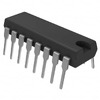

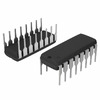
 CD4053BCSJXonsemiIC SWITCH SPDT X 3 240OHM 16SOP
CD4053BCSJXonsemiIC SWITCH SPDT X 3 240OHM 16SOP CD4053BPWRTexas InstrumentsIC SWITCH SPDTX3 240OHM 16TSSOP
CD4053BPWRTexas InstrumentsIC SWITCH SPDTX3 240OHM 16TSSOP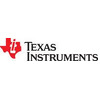 CD4053BNSRTexas InstrumentsIC SWITCH SPDT X 3 240OHM 16SO
CD4053BNSRTexas InstrumentsIC SWITCH SPDT X 3 240OHM 16SO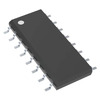 CD4053BM96Texas InstrumentsIC SWITCH SPDT X 3 240OHM 16SOIC
CD4053BM96Texas InstrumentsIC SWITCH SPDT X 3 240OHM 16SOIC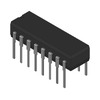 CD4053BFHarris CorporationIC SWITCH SPDT X 3 240OHM 16CDIP
CD4053BFHarris CorporationIC SWITCH SPDT X 3 240OHM 16CDIP